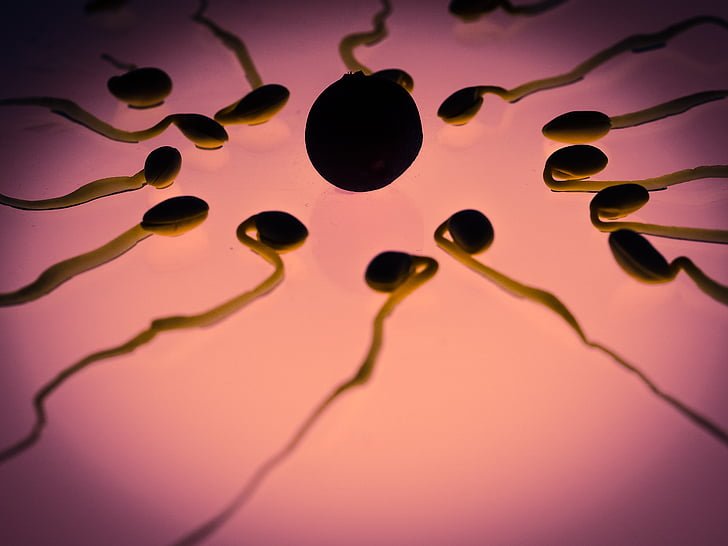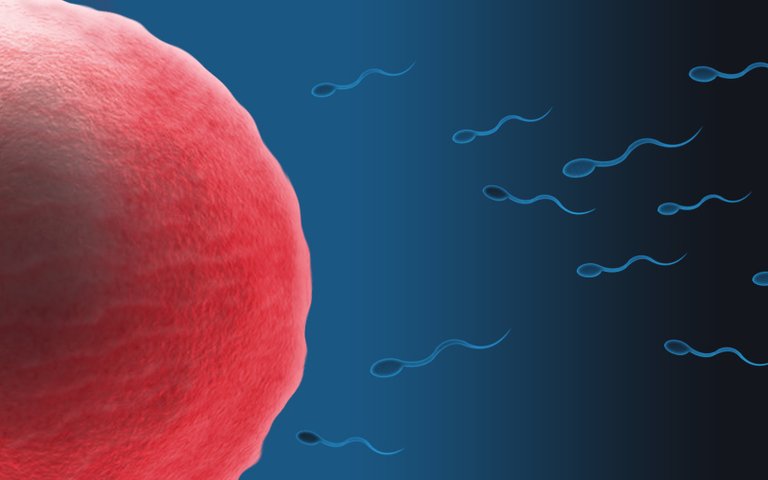Exploring Reproductive Biology in Men and the Connectivity of Sperm and Prostate Cancer
For reproduction to occur in humans, sperm cells need to be produced. Possibly in the future, this might change but for now, this is the reality. The testes is responsible for creating sperm cells, and when we talk about creating sperm cells, we are talking about millions of them. Daily, the testes produces about 300 million sperm cells which means that within the last one minute you as a man with two functional testes spent reading this post, you have produced around 70 thousand sperm to 100 thousand sperm cells. So you might begin to wonder where these sperm cells go, and how do we keep up with this efficiency of production even when it isn't ejaculated?
Sperm cells are produced in tiny tubules of the testes known as Seminiferous tubules and while the tubules are tiny, a total of about 3500 sperm cells are produced per seconds. During the production of sperm, the blood-testis barrier serves as a barrier between blood and developing sperm cells so as to help isolate the sperm cells from the immune system since sperm cells are recognized as foreign.
Following their production, sperm cells journey to the epididymis, specifically the ductus epididymis, where they undergo storage and maturation before eventual release from the body. But what happens when the ductus epididymis reaches its capacity, and where do the surplus sperm cells go? Contrary to an imagined "war" between cells, the reality is that sperm cells lingering for an extended period in the ductus epididymis eventually degenerate, getting absorbed into the cell linings of the epididymis. As new cells are continually produced, older ones undergo a natural degradation process.
Vasectomy, a surgical procedure that involves cutting the Vas Deferens (the tube connecting the tubules to the ductus epididymis), prevents sperm cells from reaching the ductus epididymis. It's essential to note that not all components of the sticky liquid observed during climax are sperm cells; secretions from the seminal glands, prostate gland, and bulbourethral glands also contribute to the ejaculate.
That said, does ejaculating all the time reduce prostate cancer? I have heard this from so many people and I am sure you have heard this as well. Don't worry, I will explain this now, so let's go on. We know that the prostate releases secretion that makes up part of the ejaculate, helping to nourish the sperm cells as well as protect them, but there is a hypothesis that if there is an accumulation of prostastic secretion, it can become carcinogenic which could lead to cancer, this hypothesis is known as the Prostate Stagnation hypothesis.
Let me state clearly before the males begin to jump from bed to bed to perform romantic coitus in the hope of saving themselves from prostate cancer, there are other factors involved for the causes of prostate cancer, also it is a hypothesis and not law although research has shown a 20% risk reduction in prostate cancer in men that ejaculate frequently compared to men that do not.
These said, let me say that males do not have to worry about build up of sperm cells in their body if they do not ejaculate since it will be reabsorbed. It will be good to correct that notion that the body becomes heavy when a person haven't ejaculated in a very long time. On the case of the prostate cancer, the study was done on low risk types of prostate cancer and not the higher risk type, also more research is being done on this, so jumping to conclusion would be a very wrong thing to do.


Thanks for your contribution to the STEMsocial community. Feel free to join us on discord to get to know the rest of us!
Please consider delegating to the @stemsocial account (85% of the curation rewards are returned).
Thanks for including @stemsocial as a beneficiary, which gives you stronger support.